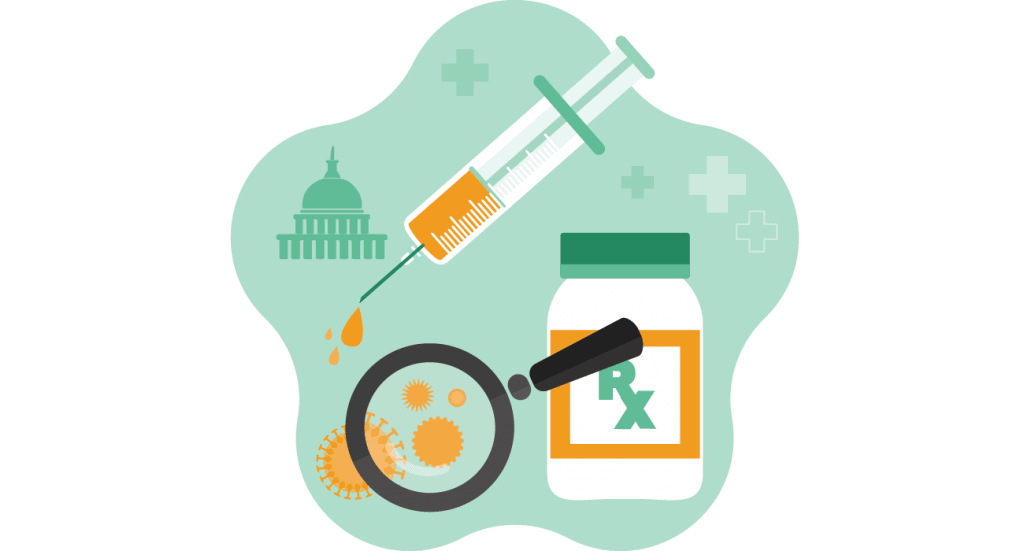A vaccine for the novel coronavirus disease 2019 (COVID-19) is a key tool for bringing an end to the outbreak. However, once the vaccine is developed, successful deployment will require that our healthcare system be fully prepared to deliver the vaccine quickly and universally. Several obstacles could impede successful delivery. While childhood vaccination rates for most serious ailments are in the 90th percentile, vaccination rates for adults are well below public health targets. Less than 50 percent of adults aged 19-64 years get a flu shot every year. Adults ages 18–64 with risk factors achieve a pneumococcal vaccination rate of only 24 percent.
Preparations to deliver a COVID-19 vaccine must address factors such as cost and convenience that keep younger adults from being vaccinated. Administering the vaccine at community pharmacies may be the lowest-cost and most convenient alternative. Roughly 9 out of 10 Americans live within five miles of a pharmacy; community pharmacies provide patients with vaccination services without an appointment and offer extended hours of service. However, regulations allowing pharmacist-administered vaccines vary by state, and changes to such regulations will require working through bureaucratic and legal barriers.
There are a number of actions that could be taken now to be ready for quick and universal immunization of the U.S. population for COVID-19. Pharmacists should be integrated into public health planning for vaccine responses to pandemics. For rapid and widespread scalability of a mass immunization campaign, state laws governing pharmacists’ ability to independently immunize patients should be expanded and harmonized to include all Food and Drug Administration-approved adult vaccines. Clinical data systems must link pharmacists, doctors and insurers. In addition, health insurance must fully cover the cost of the vaccination. Now is the time to work on these preparations for COVID-19 and other vaccinations important for public health.
Read the full white paper on the website of the USC Schaeffer Center for Health Policy and Economics.


